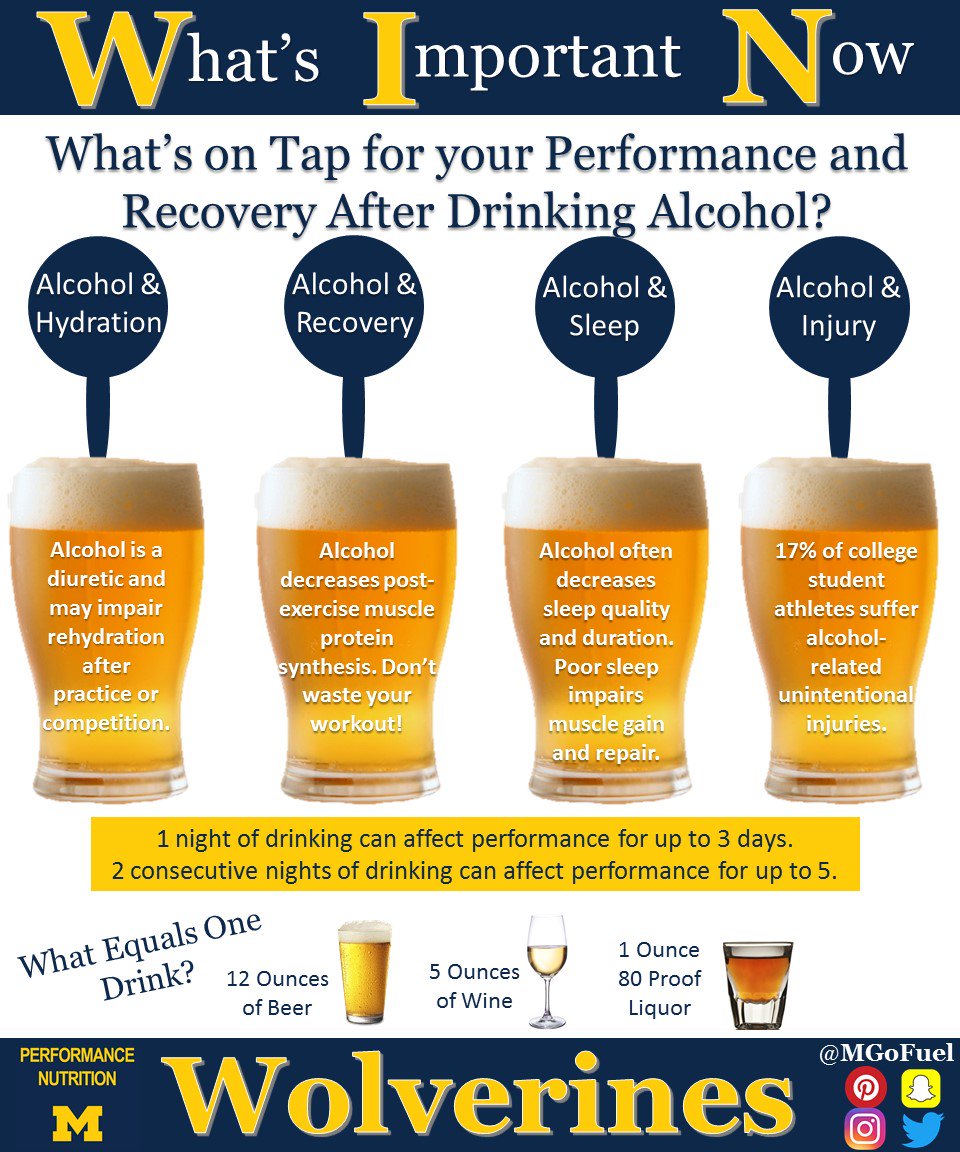
Alcohol And Athletic Recovery. 4203 mM vs alcohol. Alcohol and Athletic Recovery Published by Megan Kuikman on July 10 2018 July 10 2018. In a 2014 review study researchers concluded that if athletes do consume alcohol after sport exercise a dose of approximately 05 grams per kilo of bodyweight is unlikely to. Alcohol has diuretic action causing increase urine loss through inhibition of the anti-diuretic hormone ADH.

Interestingly alcohol intake enhanced the exercise-induced increase in lactate concentration at the two intensities. Those responsible for the wellbeing of. A scientific study conducted based on the Firstbeat database shows that. Another simple rule is that the less alcohol you consume the less chance of hindering recovery. Alcohol and Exercise Recovery Most of the studies examining alcohol and athlete recovery have focused predominately on functional measures of muscle performance and blood borne markers of cellular tissue damage. In a 2014 review study researchers concluded that if athletes do consume alcohol after sport exercise a dose of approximately 05 grams per kilo of bodyweight is unlikely to.
Interestingly alcohol intake enhanced the exercise-induced increase in lactate concentration at the two intensities.
P0003 and 15 above. 4203 mM vs alcohol. Quantatively for every 1 gram of ethanol consumed there is a 10mL excess in production of urine. Read on for the 5 potential impacts of alcohol. In general acute alcohol consumption at the levels often consumed by athletes may negatively alter normal immunoendocrine function blood flow and protein synthesis. To date these studies have produced inconclusive results that fail to demonstrate a dose-dependency or critical threshold above which muscular recovery is.